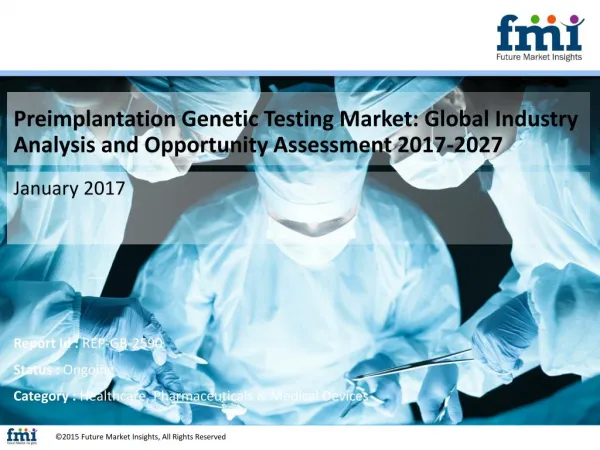Preimplantation Genetic Testing Market Analysis and Value Forecast Snapshot by End-use Industry 2017-2027
Preimplantation genetic testing or preimplantation genetic diagnosis is a technique in which the embryos prepared through in vitro fertilization are tested for defects before implantation. Preimplantation genetic testing enables physicians and to identify the defects present in the embryos and selectively implant healthy embryos in the uterus which increases the chances of delivering a genetically healthy baby. Preimplantation genetic testing helps people to avoid the hereditary disorders that prevail in the family to be carried into the baby. The preimplantation techniques involve various steps like the collection of eggs from the mother or egg donor which are later in vitro fertilized. Fertilized eggs are then tested for various genetic conditions through screening processes. Healthy embryos may be frozen and stored for further use whereas unfit embryos are destroyed. The healthy embryos are implanted to induce pregnancy. Preimplantation genetic testing also serves another purpose like gender selection. However, this application is currently facing several ethical questions. The preimplantation genetic testing is currently is gaining popularity as a fertility treatment option among carriers of sex-linked genetic disorders, single gene donors, people suffering from chromosomal disorders, older women seeking pregnancy and among women who experience recurring abortions.
★
★
★
★
★
161 views • 7 slides
